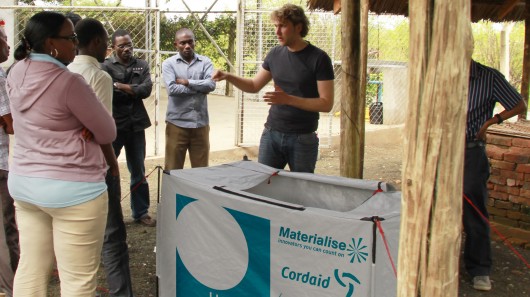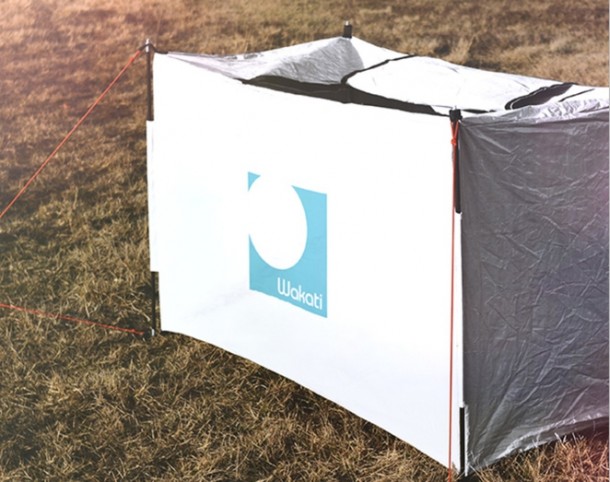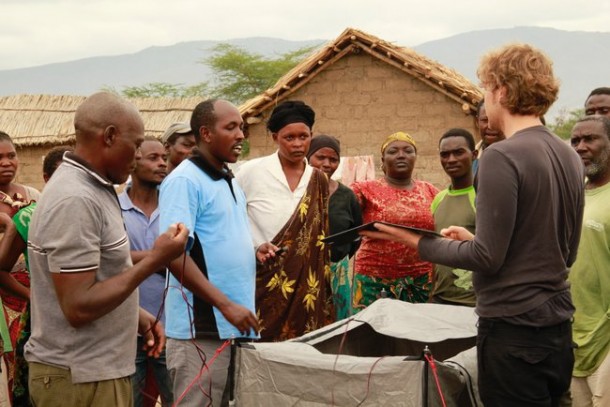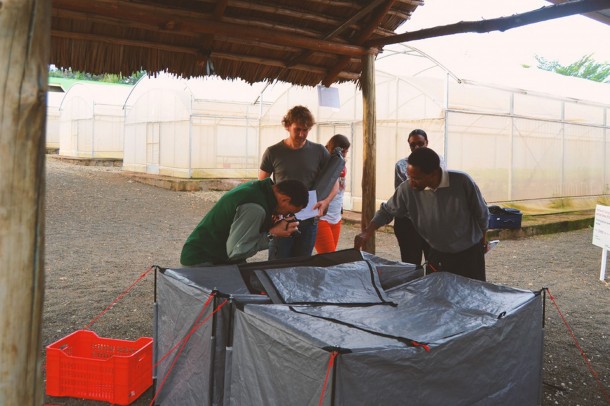How do you keep farmers from losing profit due to spoilage? We all know that providing refrigerators to farmers in developing countries is a tiresome task that may not prove to be feasible at all. This problem is to be tackled using a new device that will increase the short-term storage time for fruits and vegetables. The Wakati stores produce crops in a sterilized microclimate.


The designers of Wakati while understanding that not all countries have electricity readily available, made use of solar energy for it’s operation.The device comes with a tent-like top-loading structure capable of storing about 150kg of produce while also sporting a 3W solar panel along with a ventilator that is solar powered. The ventilator evaporates a weekly supply of 200 ml (6.7 fl oz) of water that creates a humid environment within the tent.
Company founder Arne Pauwels explains that the humid environment created by Wakati helps to control the extent to which crops dry out after being harvested. As a result, the cells of the crops are kept intact and the acids and enzymes inside the cells are kept contained.
The Wakati is only for short-term purpose, it cannot control temperature and hence, cannot store fruit and vegetable for longer periods, like refrigerators do. Pauwel, however, says that tests show that this shelf life of produce can be increased to 10 days using Wakati. This increases the amount of time for which the produce can be stored in developing countries before its sale, reducing the waste and increasing the profit for the farmer.
100 Wakatis have already been shipped to Haiti, Uganda and Afghanistan. According to Pauwels, the company is ready to go into full production at an initial cost of US$100 per unit (though it is hoped that an increase in production will bring that cost per unit).


